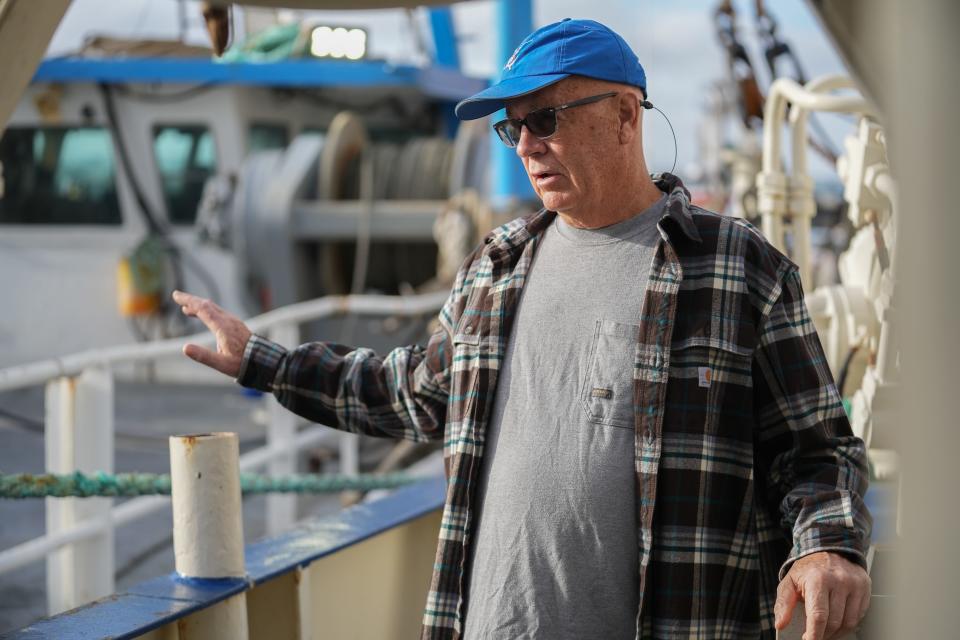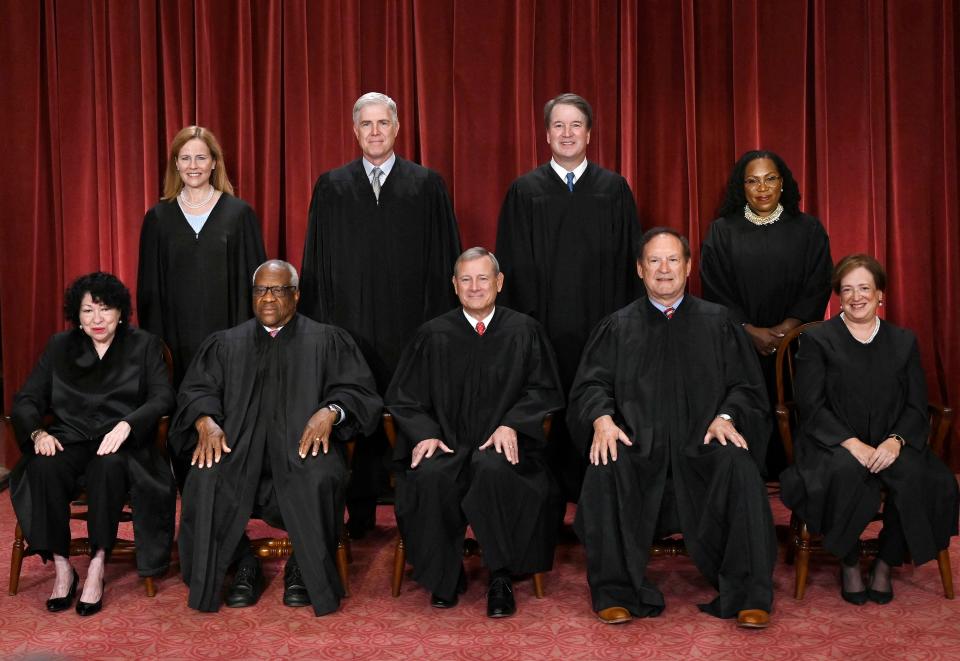A Supreme Court case about fishing could force Congress to actually work
Since the Supreme Court shifted to a 6-3 conservative-appointed majority in 2020, between abortion restrictions and gun rights, the justices have decided on numerous high-profile cases. However, arguably, the most important case yet was heard Wednesday and concerns Atlantic herring fishermen.
Loper Bright Enterprises v. Raimondo revolves around a 2007 law allowing the National Marine Fisheries Service to place federal observers on board fishing boats to ensure commercial fishermen are following the law.

However, when the agency began to experience budget shortfalls, it mandated that the fishermen pay the salaries of these observers, totaling roughly $700 per day. But the court is looking at a bigger issue that could ultimately force Congress to do its job.
The earlier ruling that got SCOTUS to this case
The question the Supreme Court justices granted review on was whether they should overturn a key precedent set 40 years ago.
In 1984, the Supreme Court made an innocuous decision in Chevron v. Natural Resources Defense Council, deeming that in cases where Congress leaves ambiguities in statutes, courts should defer to executive agencies’ interpretations of the law, so long as that interpretation is “reasonable.”

The intent of the doctrine known as “Chevron deference” was to limit judges attempting to legislate from the bench. However, four decades later, that decision has led to a massive shift in policymaking from Congress to unelected executive branch officials.
In practice, the law allows executive agencies to twist the law to meet their partisan ends in the case of any gray area.
Chevron deference hurt my business: Bureaucrats threatened to sink my fishing business. Supreme Court can keep others afloat.
An opportunity to fix a judicial mistake
Chevron has long been the target of criticism of those who subscribe to originalist jurisprudence. Now, Justice Neil Gorsuch and the rest of the 6-3 conservative majority on the Supreme Court have the chance to overturn Chevron, and they seem eager to do so.
"The cases I saw routinely on the courts of appeals – and I think this is what niggles at so many of the lower court judges – are the immigrant, the veteran seeking his benefits, the Social Security disability applicant, who have no power to influence agencies, who will never capture them, and whose interests are not the sorts of things on which people vote,” Justice Gorsuch said at Wednesday's hearing.
Justice Brett Kavanaugh criticized Chevron as well, arguing that it “ushers in shocks to the system every four or eight years when a new administration comes in.”
Opinion alerts: Get columns from your favorite columnists + expert analysis on top issues, delivered straight to your device through the USA TODAY app. Don't have the app? Download it for free from your app store.
The court heard reasons why overturning the previous case could cause problems.
Overruling Chevron would cause an “unwarranted shock to the legal system,” U.S. Solicitor General Elizabeth Prelogar said. Her argument is that the current framework provides stability, and that courts would be bogged down with litigants from past cases that were decided using Chevron deference, that now would have the opportunity to relitigate their case.
The decision of the court is likely to fall in the hands of Chief Justice John Roberts and Justice Amy Coney Barrett, both of whom expressed sympathy toward Prelogar’s position. The liberal appointees are expected to vote to uphold Chevron.
Supreme Court must overturn the earlier ruling and wake Congress up
Just because resolving incorrect law is inconvenient does not mean we should allow bad precedent to stand. This is the very logic the court has followed in overturning other precedents, such as Plessy v. Ferguson or Roe v. Wade.
The real problem with Chevron is that it has allowed Congress to become complacent.
Legal victory – and a moral one: Supreme Court rules to end affirmative action, moving US in the right direction
The punishment for legislation remaining ambiguous when it becomes law ought to be that those responsible be tasked with fixing it. In a perfect world, lawmakers would be the ones asked to remedy discrepancies in law. After all, they created the problem, they ought to fix it.
But Congress is both lazy and divided, making the passage of any legislation difficult, much less renegotiating bills that have already passed.
At least three of the conservative appointees on the court seem eager to do away with Chevron as a doctrine, and they should do so. Keeping the current framework intact, or worse, inventing a new judicial standard altogether, runs amok of the Constitution.
Congress should be encouraged to make laws, and forcing our representatives to do so is one major piece of restoring a major function of our government.

Dace Potas is an Opinion fellow for USA TODAY. A graduate from DePaul University with a degree in political science, he's also president of the Lone Conservative, the largest conservative student-run publication in the country.
You can read diverse opinions from our Board of Contributors and other writers on the Opinion front page, on Twitter @usatodayopinion and in our daily Opinion newsletter.
This article originally appeared on USA TODAY: Supreme Court fishing case could force Congress to do its job


